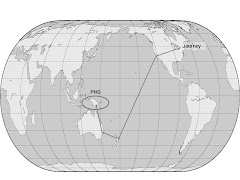


 Our ministry teams returned to the village yesterday. It was our third visit for ministry, in addition to Sunday’s time of worship. Ingrid and Donna met with the women and they continued their talks. Last time the focus was on the importance of knowing and following God’s word (2 Timothy 3:16-17), with both Ingrid and Donna sharing. This time the theme was Forgiving One Another. “Bear with each other and forgive whatever grievances you may have against one another. Forgive as the Lord forgave you,” (Colossians 3:13) was her key verse. There had already been clear of evidence of a healing of the rift that had divided some of them, but the good news of Jesus was working even deeper.
Our ministry teams returned to the village yesterday. It was our third visit for ministry, in addition to Sunday’s time of worship. Ingrid and Donna met with the women and they continued their talks. Last time the focus was on the importance of knowing and following God’s word (2 Timothy 3:16-17), with both Ingrid and Donna sharing. This time the theme was Forgiving One Another. “Bear with each other and forgive whatever grievances you may have against one another. Forgive as the Lord forgave you,” (Colossians 3:13) was her key verse. There had already been clear of evidence of a healing of the rift that had divided some of them, but the good news of Jesus was working even deeper.Aaron, Becky, Marylou, Mark, John, Nick and Tim met with the children and the men (including teenagers). At our second meeting we continued our teaching on courage; Becky told the story of David’s courage in standing for righteousness by facing Goliath so that “the whole world will know that there is a God in Israel.” (1 Samuel 17:46) In doing so, he, like Esther, became a national hero. At our third meeting the focus was on Jesus – the greatest hero of all. Though he knew obeying the Father’s will would lead to his own suffering and death, “he steadfastly set his face to go to Jerusalem.” (Luke 9:51) He courageously “demonstrates his own love for us in this: While we were still sinners, Christ died for us.” (Romans 5:8) And because he lives now, we too, can live.
New life through Jesus was Aaron’s story. He took the men aside and shared the story of God’s dramatic work in his life – an amazing story of redemption and renewal, and a story you will want to hear.
At the end of this time of ministry, men and women had declared their new desire to follow Jesus. What powerful work the Lord has been doing. And the bonds of friendship that have developed between our ministry team and the people of Ba’e are special indeed. We all know we now have new family members – brothers and sisters in Christ – on the other side of the world. “Unless the Lord builds the house, those who build it labor in vain.”
P.S. Aaron will be telling his story at Journey Christian Church’s Men’s Retreat (Friday & Saturday, October 2 & 3; contact Journey if you would like information on the retreat.)




